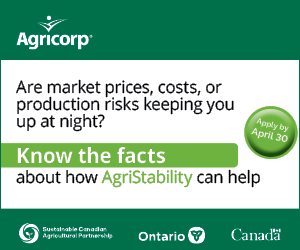Market side: Futures trading basics
LESSON 9: FUTURES VS. STOCKS

This monthly educational series will feature the basic workings of the futures and options markets and how they can be utilized to help farmers with risk management.
BEING A FUTURES broker for over 25 years, I’d like to dispel a few myths about futures trading and explain the basic differences between futures contracts (commodities) trading and equity (stocks) trading.
Futures contracts were designed primarily for the sole purpose of transferring risk from one party to another with the intent of protecting against price fluctuations which could impact one’s profit margin. This concept works for both small and large companies alike.
Owning shares in a company that mines gold for example, does not guarantee profits just because the price of gold rises. The management decisions of a company ultimately dictate whether or not your shares increase in value. Supply and demand are the only two things that control the price of a commodity. If supply is low or demand is high, prices rise; if supply is high or demand is low, prices drop.
Unlike purchasing shares in a publicly traded company, trading futures is not intended as a way to transfer ownership of the underlying commodity. There are more than 50 thousand publicly traded companies worldwide, but only 40 to 50 commonly traded commodities. When you purchase shares in a company, you are required to pay for 100% of the stock value if the price is less than $5 per share. If the stock does qualify for margin, you are required to deposit 30% to 50% of the purchase value.
Futures generally require margin between five and 10 per cent of the value of the contract due to the fact that the underlying hard assets of the contract act as security against your position. This leverage can work with you or against you depending on your money management skills and for this reason futures are considered riskier than equities.
Owning stock in a company gives the directors control over your investment. Unwise corporate decisions could lead to lower stock prices. Supply and demand, ultimately, is the controlling factor in commodity price levels.
Publicly traded companies can go bankrupt, losing your entire investment. Some notable bankrupt companies include Lehman Brothers, Kodak, General Motors, Worldcom, Enron Corp., United Air Lines, Delta Airlines, Global Crossing, and Pacific Gas and Electric to name just a few. There has never been a single default of payment in the almost 200 year history of the clearing firms in North America.
Commodity contracts represent tangible assets such as coffee, wheat, gold, and crude oil, whereas buying shares in a company is a vote of confidence in that company’s future success.
When trading in the stock market, generally you buy low and sell high due to the fact that shorting stocks is complex and requires you to borrow the shares and you are responsible for any dividend payments while you are short. In futures trading, you can easily trade in either direction, depending on your bullish or bearish bias, and simply cover or offset your position when you want to exit.
The bottom line here is to recognize the difference between the two markets and the purpose of each. l•
Marty Hibbs is a 25 year veteran futures trader, analyst, and portfolio manager. Hibbs was a regular guest analyst on BNN for four years. He is currently a grain merchandiser with Grain Farmers of Ontario.
|
Lesson Definitions: Publicly traded company: Publicly traded company: A corporation whose ownership is dispersed among the general public in many shares of stock which are freely traded on a stock exchange or in over the counter markets. Short selling or shorting: Selling shares in a company or contracts that you do not own, with the intent of buying them back at a later date and a lower price to profit from the price differential. |







